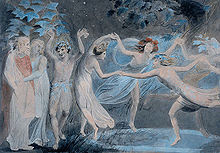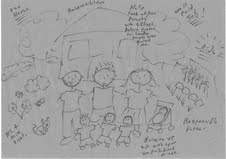It’s not called labour for nothing!
Ouch, what is that kick
That makes me sick
Breaking in sweat
Oh mine, I am wet
Is that mucous
Oh just focus!
It’s coming, go get the doctor
Stop looking at the buttocks
Tis no time for old wives tales
For I am in pains and already pale
I am coming, I am coming, you screamed
Keep pushing, keep pushing now you screeched
Oh nurse, this hurts, please do something
It’s not yet time, she keeps snorting
Tis was sweet but now it’s a dilemma
Oh no try a push and a dilation
Those sweet contractions
Are now a contradiction
That leaves me frustrated
No longer besotted
Push, Push, you are all preaching
I am the one that is screeching
The baby must not come breeching
Oh what, I am bleeding!
Maybe I need an epidural
Or is this just procedural
Heavily I breathe
Now I seethe
Not cumming in ecstatic orgasms
But pushing a human organism
Oh, I see a head
Quick I need a lead
Oh nurses stop laughing
Maybe try fawning
This isn’t funny
I don’t feel sunny
This is no botox
Where is the doctor
I might need a suture
To give me succour
Oh dear, here comes my baby
All wet, slippery and bubbly
Beautiful as the morning dew
You have come to pay your due
Ha, tis looking for the boobs
Ready to start the smooch
In my arms tis nestled
All ready to suckle
I am ready to nurture
I guess tis in my nature
Tis suckling, You are rustled
Dad is rippling but bristled
Those boobs are mine alone
On my terms I give and loan
I do all the labour
You get all the flavour
Never again will I be pushed
This was agony I am flushed
I need science of equality to share
Our baby together we should bear
Mommy is that my sibling
Oh no, I must be blinking
Can’t afford to miss my periods
Cos things can get too serious
Little bump and grind and the baby pops
Now all I have is a pushing tot that sobs
But then I should know
One, two, three years now
I can see a rounded tommy
Ready again to be a mommy!
BY YEMISI ILESANMI 22 MARCH, 2011
Biographical Note
 |
| Yemisi Ilesanmi |
Yemisi Ilesanmi is a passionate human rights activist, bisexual, atheist and an unpublished poet and budding writer. She is interested in and often make public presentations on gender issues, sexuality rights, workers rights, youth representation and environmental protection. She is commited to a world of peace where justice reigns supreme.
Text originally published as a Note on Facebook, republished here with permission.












